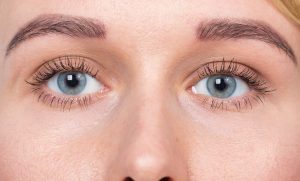 A scratched cornea, or corneal abrasion, is a common eye injury, which can lead to discomfort, redness, and sensitivity to light. The cornea is the clear surface of the eye responsible for light focusing, which enables you to see.
A scratched cornea, or corneal abrasion, is a common eye injury, which can lead to discomfort, redness, and sensitivity to light. The cornea is the clear surface of the eye responsible for light focusing, which enables you to see.
When the cornea becomes scratched, your ability to see becomes hindered and your risk for infection also increases. In order to reduce your risk of complications resulting from a scratched cornea, you should speak to your doctor right away.
Causes of a scratched cornea
Advertisement
There are many ways to get your cornea scratched. Essentially, anything that comes into contact with your cornea can cause a corneal abrasion.
People commonly scratch their cornea with tree branches, makeup brushes, a finger, workplace debris, sports equipment, sand, and dust. Contact lenses that have been worn for too long or are damaged can increase your risk of a corneal abrasion, too.
Natural remedies for a scratched cornea
- Try to remove the foreign object in your eye – this can be done with blinking. Do not try to remove it by sticking another object into your eye.
- Rinse out your eye.
- Apply eye drops for added lubrication.
- Apply a cold compress to the injured eye.
- Wear protective eyewear like goggles or sunglasses to reduce further injury.
- Don’t wear contacts days after the injury – allow for some healing to occur or wait your doctor’s approval.
- Avoid wearing an eye patch as it can increase the temperature of the eye, worsening the pain.
- Avoid rubbing your eyes.
- Eat a healthy diet to promote eye health – this means plenty of fruits and vegetables, and fish.
- Get plenty of rest.
When to see a doctor for a scratched cornea
Make an appointment to show your scratched cornea to your doctor if:
- The pain is constant or worsening
- You experience double vision or headache
- You feel dizzy or lightheaded
- You suspect that a foreign object is still in your eye
- You experience blurry vision, hypersensitivity to light, tearing, or serious pain
- You suspect that you have an open wound on the cornea
- You have green, yellow, or red pus coming from the eye
- You see flashes of light
- You have a fever
- You begin to experience any new symptoms
Seeing your doctor sooner rather than later can reduce your risk of any further complications that may arise as a result of a corneal abrasion.
